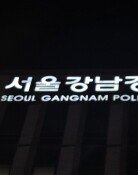[Editorial] Collapse of Doha Talks Boosts FTAs Value
[Editorial] Collapse of Doha Talks Boosts FTAs Value
Posted July. 31, 2008 08:48,
Trade negotiations among the World Trade Organizations 153 member countries under the Doha Development Agenda collapsed yesterday. The countries had reached a tentative agreement, but the setback this time came as the United States, India and China failed to compromise on measures to protect farmers in poor countries. China and India demanded more flexibility on the special safeguard mechanism to protect sensitive agricultural products from competition in the event of an import surge, something which the United States rejected. With this failure, the Doha talks lost a golden opportunity to cut a deal after seven years of on-and-off negotiations.
Despite the refusal to give up on the talks by WTO Director-General Pascal Lamy, the multilateral trade negotiations are likely to be suspended due to the upcoming U.S. presidential election, elections for European commissioners and a new WTO chief next year. All these imply that the world trade order is rapidly shifting toward bilateral free trade talks from multilateral ones.
Belatedly, Korea began to realize the growing trend of bilateral free trade deals and hurried to ratify one with Chile in April 2004. In other words, Korea as a country developed through free trade joined the free trade competition too late. Fortunately, the agreement on the free trade deal with the United States last year gave Korea more room to compete in free trade. But Korea still cannot enjoy the benefits due to delayed ratification from both Seoul and Washington.
A free trade deal is more than simply a way to secure overseas markets. Koreas free trade talks with the European Union are sure to serve as a crucial opportunity to advance our economic structure, along with the deal with the United States. Against this backdrop, Korea must expand the opening of the service sector. In securing energy resources, Korea should urgently promote free trade deals with resource-rich countries. Since the conclusion of the deal with the United States, Korea has received love calls for similar agreements from Japan and China. With these advantages along with the coordination with the Association of Southeast Asian Nations, Korea could emerge as a mediator for economic integration of East Asia.
The basic principle of the Doha Development Agenda and a free trade agreement is market liberation. The former and incumbent governments have failed to improve the grim situation in domestic agriculture despite spending hundreds of trillion won in taxpayers money. The Korean economy can no longer be trapped by agricultural protection rhetoric. To protect fruit and other agricultural products, Korea failed to open Chiles home appliance market during free trade negotiations. The result is that we are losing that market to China, which concluded its free trade deal with Chile only recently. We should not let history repeat itself.







